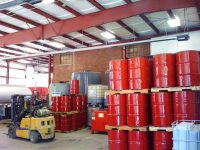Transformer oil testing based on condition and criticality of the asset, enables the detection of hidden faults, monitoring their progression, and taking action before minor issues become major. The transformer oil, often referred to as “insulating oil,” serves multiple functions, including cooling, insulating, and protecting the transformer from internal faults. It is stable at high…
Read more
Transformer Oil Testing Offered by Eurofins TestOil: Critical info for preserving the life of transformers





